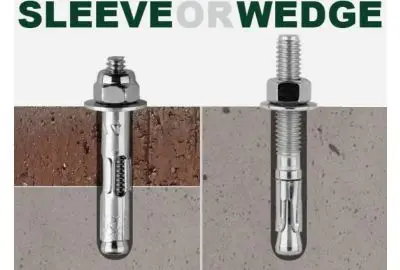buy m6 bolts
Dec . 11, 2024 18:23 Back to list
buy m6 bolts
Understanding the Importance of Buying M6 Bolts
When it comes to assembling or repairing machinery, furniture, or structural components, the importance of selecting the right fasteners cannot be overstated. Among the variety of fasteners available in the market, M6 bolts are particularly popular due to their versatility and strength. In this article, we will delve into the details of M6 bolts, their specifications, applications, and key considerations for buyers.
What is an M6 Bolt?
M6 bolts are metric bolts with a nominal diameter of 6 millimeters. The designation M refers to the metric system, and 6 indicates the diameter. These bolts are available in various lengths and thread pitches, typically conforming to ISO standards. The most common thread pitch for M6 bolts is 1.0 mm, but thicker threads (such as 1.25 mm) can also be found, depending on the specific application.
M6 bolts can be made from different materials, including stainless steel, carbon steel, and alloy steel, each offering unique properties such as resistance to corrosion and increased tensile strength. The choice of material largely depends on the environmental conditions where the bolts will be used and the specific load requirements of the application.
Applications of M6 Bolts
M6 bolts are widely used across various industries and applications. Some common areas where M6 bolts find utility include
1. Automotive Industry M6 bolts are often used in the assembly of various automotive components such as engines, transmissions, and chassis parts due to their strength and durability.
2. Construction These bolts are essential in building structures, particularly in connecting metal frames, machinery, and equipment.
3. Furniture Assembly Many flat-pack furniture items use M6 bolts for easy assembly and disassembly, thanks to their straightforward installation.
4. Electrical Equipment In the realm of electronics, M6 bolts can secure heavy machinery and equipment that houses sensitive components.
5. Industrial Applications M6 bolts are commonly employed in manufacturing machinery, aerospace applications, and agricultural equipment.
buy m6 bolts

Key Considerations When Buying M6 Bolts
When considering the purchase of M6 bolts, several factors come into play to ensure you make the right choice for your project
1. Material Determine the appropriate material based on your application. For example, if the bolts will be exposed to moisture, stainless steel may be the best choice due to its corrosion-resistant properties.
2. Length and Thread Pitch Measure the thickness of the materials you're fastening to select the correct bolt length. Ensure that the thread pitch aligns with the components you intend to assemble.
3. Coating and Finish Many M6 bolts come coated for enhanced durability. Options like zinc plating or black oxide can provide additional corrosion resistance, so consider your project's requirements.
4. Strength Grade Different grades of M6 bolts indicate their tensile strength and suitability for specific applications. Common grades include 8.8, 10.9, and 12.9, with higher-grade numbers indicating higher strength.
5. Quantity Determine how many bolts you need for your project. It's often cost-effective to buy in bulk, particularly if you anticipate future repairs or projects.
Where to Buy M6 Bolts
You can purchase M6 bolts from a variety of sources. Local hardware stores and home improvement retailers often carry common sizes, including M6. For more specialized needs or bulk orders, online suppliers and industrial fastener distributors provide a wider selection. Websites that specialize in fasteners often allow you to filter by material, length, and grade, making it easier to find the ideal bolts for your purposes.
Conclusion
Buying M6 bolts is a relatively straightforward task, but understanding their specifications, applications, and the factors affecting your selection will help ensure the success of your project. Whether you are a DIY enthusiast, a contractor, or an engineer, getting the right M6 bolts can make a significant difference in your work's quality and durability. Always remember to consider the material, length, thread pitch, coating, strength grade, and quantity when purchasing these essential fasteners. With the right M6 bolts in hand, you can tackle a vast array of assembly and repair tasks with confidence.
Latest news
-
Premium Phosphated Drywall Screws Supplier | Durable, Rust-Resistant
NewsAug.27,2025
-
Reliable Wire Bolts Suppliers | Quality Zinc Plated Fasteners
NewsAug.26,2025
-
Wire Bolts Suppliers: Durable & Reliable Fasteners for Every Project
NewsAug.25,2025
-
Premium Cabinet Bolts Supplier | Wholesale & Custom Solutions
NewsAug.24,2025
-
Reliable Axle Nuts Supplier | Quality & Precision Fasteners
NewsAug.23,2025
-
Durable Bolts for Lawn Mower Handle - Top Supplier & Manufacturer
NewsAug.22,2025
